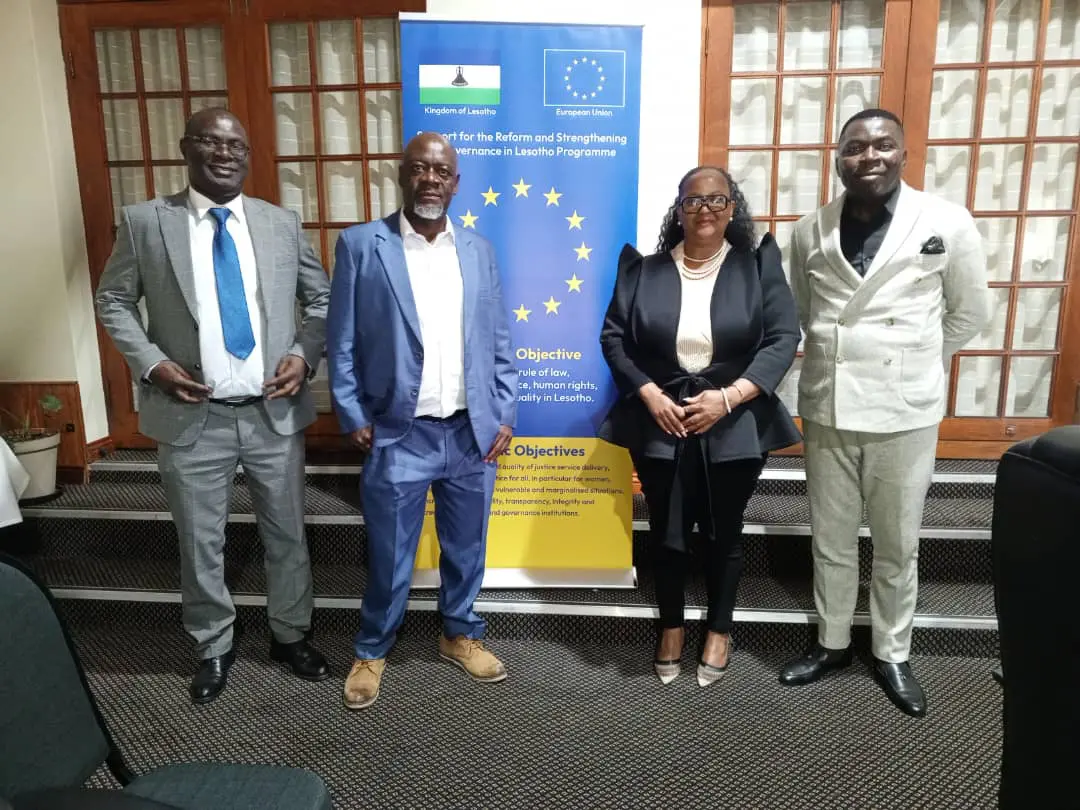A Nigerian, Dr Tonye Clinton Jaja, is among legal experts drafted by the European Union, (EU) to train Lesotho lawyers as part of a program to improve the rule of law in the southern African country.
Jaja will handle a training on legislative drafting for staff of the Office of Parliamentary Counsel, Ministry of Justice of the Kingdom of Lesotho.
The training, which runs from October 21 to November 1, 2024, is in line with the ‘Support for the Reform and Strengthening of Governance in Lesotho Program’ organized by the EU.
The Support for the Reform and Strengthening of Governance in Lesotho Program, funded by the European Union and led by International Consulting Expertise, aims to foster the rule of law, good governance, human rights, and gender equality in Lesotho.
Objectives of the program include providing support to improve efficiency and quality of the justice service delivery in Lesotho; improve access to justice for all, in particular women, children, and other vulnerable and marginalized groups and increase accountability, integrity, and credibility of justice and governance institutions.
Speaking during the launch of the program, Mario Giuseppe Varrenti, Head of Cooperation, European Union Delegation to Lesotho, said the project is aimed at strengthening oversight and accountability, increasing the efficiency of justice service delivery, as well as quality justice for all.
Stressing that justice delayed is justice denied, he noted that when that happens, citizens end up losing trust in the legal system.
“Individuals who are survivors of crimes or wrongfully accused of crimes may suffer from prolonged emotional and psychological distress while waiting for their cases to be resolved.
“Legal battles can be expensive, and the cost of hiring lawyers, attending court hearings, and other related expenses can be a significant financial burden on citizens.
“When survivors see that justice is not served promptly or effectively, they may be deterred from reporting crimes, out of fear that they will not see a resolution or that they may face retaliation from the perpetrator.
“A lengthy justice system can lead to overcrowding in prisons due to long pre-trial detentions and slow court processes, resulting in harsh conditions for inmates and hindering efforts at rehabilitation.
“Delayed justice ultimately disproportionately affects marginalised communities with less resources,” he said, highlighting challenges in the Lesotho legal system which are expected to be addressed by the program.
The EU official added that the program will ensure stronger coordination between criminal justice actors, including police officers, prosecutors, courts and correctional services, while also strengthening capacity, through training and coaching for lawyers, judicial officers, prosecutors and court personnel.
An expert in the field of legislative drafting, Jaja is a senior staff at the National Institute for Legislative and Democratic Studies, NILDS. He is also a legislative drafting lawyer for the National Assembly.
Lesotho, a southern African country, is a constitutional monarchy, with the King as Head of State, an elected Prime Minister as Head of Government, and a dual legal system consisting of traditional customary law and the common law.
Nigerian expert, Jaja trains Lesotho lawyers in EU program
